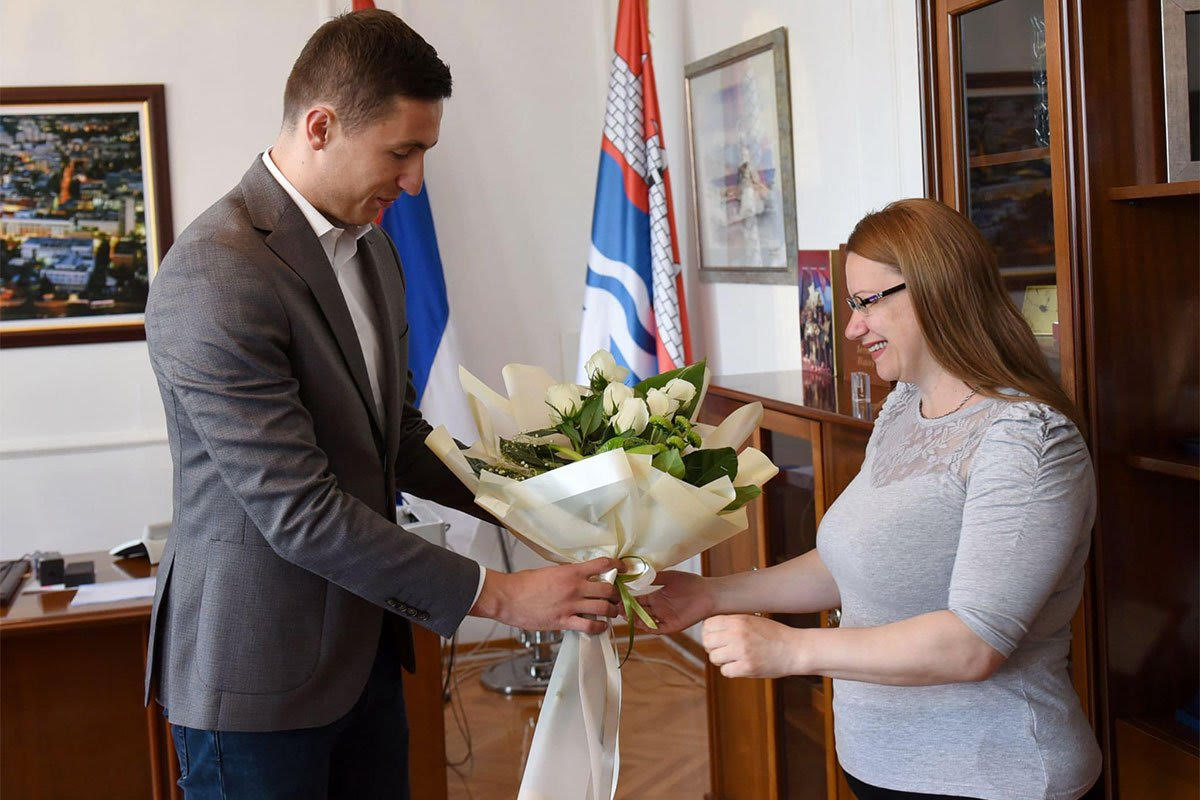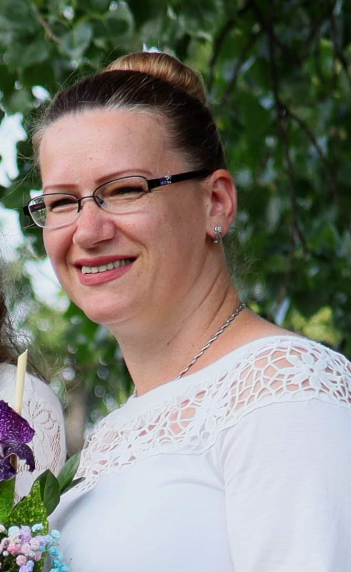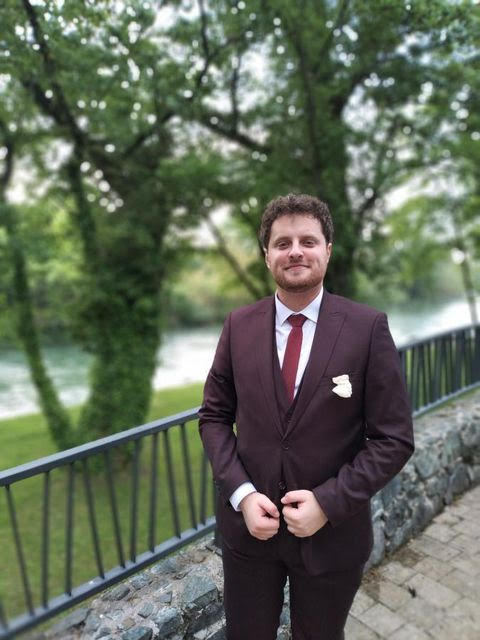
Banja Luka resident Merima Gajić is known to her fellow citizens as the heroine of the city on the Vrbas, after rescuing a young girl who recently found herself in the whirlpools of the cold Vrbas River. For this heroic act, she has received recognition from citizens throughout Bosnia and Herzegovina as well as leaders in Banja Luka.
The enthusiasm which Gajić’s act has generated across the country can be explained by the fact that the story had a positive ending. Although there were dozens of people walking on the famous Banja Luka City Bridge at that moment, it was Gajić who decided to risk her own life. As Gajić explained to Balkan Diskurs, she left her youngest child Milica in the arms of her older daughter Anđela Completely focused on the girl in need of help, she only managed to say, “Don’t worry!” before jumping into the Vrbas.

“I wasn’t thinking about myself at all, because when I jumped in the Vrbas and opened my eyes, I realized that the dam was released, and considering that I grew up on the Vrbas, I wasn’t afraid of the speed of the Vrbas current. I know how to swim and that I know the terrain. My goal was just to get to the near-by willow, grab onto it with my right hand, hold the girl with my left hand and my feet, and keep us afloat as I push to the shore,” Gajić said.
Right as they got out of the water, she says that three police officers and two other citizens came to her aid to help the girl she had just rescued.
“I don’t know what would have happened if we hadn’t managed to reach that willow. There are a lot of tufa and whirlpools, and in my estimation, it all lasted maybe a minute, I can’t say for certain. As I was going down the coast towards the Vrbas, at one point it went through my head ‘I have children, God forbid something happens to them, would anyone help them?’ but it was just important for me to save the girl,” Gajić said.
“I would do the same again”
As she stated, she hasn’t yet contacted the girl directly but is in touch with her family. The mother of the recued girl told her then that her daughter is fine now, but Gajić and the girl plan to get to know each other better in the future.
“There were a lot of people on the bridge and on the old raft at that time, but no one jumped into the water to help. Later, my daughter told me that a lady was shouting to help the girl,” Gajić recalled.
She emphasized that she is happy to have saved such a young life. In response to praise from her family, politicians, and fellow citizens who call her a hero, she says that she doesn’t see herself that way, but rather as an ordinary wife, mother, and citizen of Banja Luka.
“I could never act like everyone else. If there was a fire, I would jump in to help even though I have young children. Of course, I would have felt guilty, I don’t know how I would have looked my three children in the eye if I hadn’t helped the girl. My conscience wouldn’t have been at peace, especially when I found out that it was a minor. From my point of view, I believe that it is the duty of every citizen to help others in trouble, no matter what the trouble is, and here, while I am telling you this, I would do the same thing again without thinking,” Gajić pointed out.
Psychologist Simo Đukić explains the courageous act of the Banja Luka woman as the purest form of prosocial help and altruism, in which the helper is extremely selfless and does not expect to see any material or psychological rewards.
“The goal is thus to help a person even if the helper can suffer serious harm. It is, therefore, an example of pure and human interests of altruistic people, which some believe does not actually exist in such a form. However, I would say that it exists, which is evidenced by such heroic deeds,” said Đukić.

According to Đukić, reactions of pure altruism exemplified by such an act are not common because people are generally selfish in nature. Some believe that pure altruism, without any expectation of personal reward, be it physical or mental, does not exist. Many factors need to coincide for a person to act like Gajić did that day.
The phenomenon of diffusion of responsibility is interrupted
Đukić explains that her reaction process can be divided into five phases. The first was noticing the event itself. The second is to recognize it as significant, which is what motivated her to act.
“It was a bridge from which people often jump into the river, and for many passers-by, such an event doesn’t provoke the attention it deserves, although it should. Merima, therefore, stands out because she automatically recognized the unusualness and seriousness of the situation,” said Đukić.
The third phase, which Đukić describes as the most important, was taking responsibility.
“With this, Merima interrupted the psychological phenomenon of diffusion of responsibility, where, I guess at one point, she said to herself: ‘No one else will, you have to.’ Diffusion of responsibility assumes that the more observers there are in a situation, the less likely it is that anyone will help. People are preoccupied with the thought that someone else will do it, and so no one helps. Merima didn’t succumb to this phenomenon and took responsibility,” Đukić explained.
After the decision phase, the fourth phase is also important. Đukić describes this phase as the recognition that one has the capacity, knowledge, and ability to provide assistance.
“In this case, after the decision to help was made, this was the easier part, because Merima knows what swimming abilities and strength she has. In the case of some other accidents, it is very important not to harm yourself and be aware of the limits of your knowledge and skills. The last phase is the jump itself, after which the decision to help is final. The heroic act of Merima stands right here because she did not give time to distract her from the decision to help. Merima didn’t spend an hour calculating the dangers for herself or for her young children,” Đukić added.
The act of rescuing the girl from the Vrbas has been characterized as heroic, which the psychologist considers correct because “such reactions, as I said, are rare, and many factors played a role, which is good for the girl whose life was saved.”
“We can only assume what would have happened if a person like Merima had not been in the right place at the right time, but knowing the mechanisms in the background, it seems to me that the outcome would not be positive or good,” Đukić concluded.
He emphasized that just as there are altruistic people like Gajić, there are people who are prone to suicidal thoughts. It is not yet known whether this was a suicide attempt or an accident, but according to Đukić, one should not dismiss someone’s talk of harming themselves as cries for attention or poor jokes.






